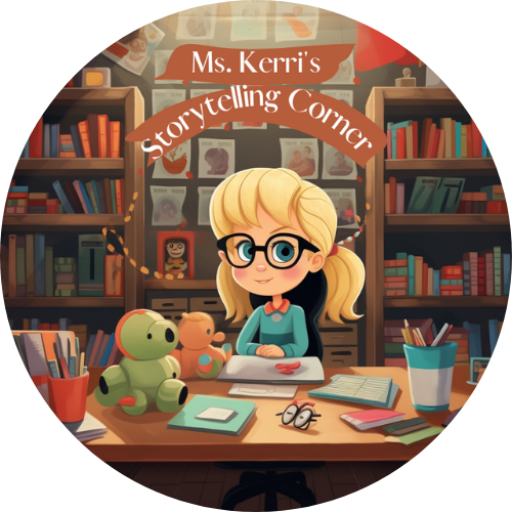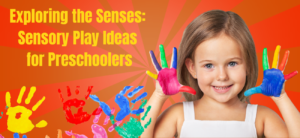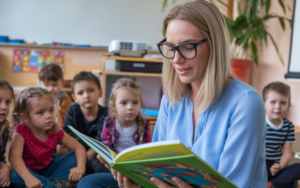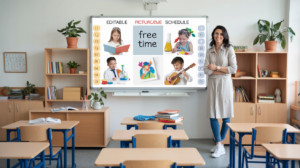Preschool education plays a crucial role in a child’s development and sets the foundation for their future success. It provides young children with the necessary skills and knowledge to thrive academically, socially, and emotionally. In this article, we will explore the importance of preschool and how it prepares children for kindergarten and beyond.
Key Takeaways
- Preschool education offers numerous benefits for young children, including improved cognitive abilities and enhanced language and communication skills.
- Attending preschool helps children develop social and emotional skills, such as cooperation, empathy, and self-regulation.
- Preschool teachers play a vital role in creating a nurturing and supportive environment for children to learn and grow.
- When choosing a preschool, it is important to consider the curriculum, teaching methods, and the qualifications and experience of the staff.
- Assessing the learning environment and ensuring it is safe, stimulating, and age-appropriate is essential when selecting a preschool for your child.
What is Preschool and Why is it Important?

The Benefits of Early Education
Preschool provides a strong foundation for children’s future academic success. Early education has been shown to have numerous benefits that extend beyond the classroom.
- Improved cognitive skills: Preschool helps children develop important cognitive abilities, such as problem-solving, critical thinking, and decision-making.
- Enhanced social skills: Through interactions with peers and teachers, children learn how to communicate, cooperate, and resolve conflicts.
- Better emotional regulation: Preschool provides a nurturing environment where children can learn to manage their emotions and develop resilience.
Tip: Encourage your child to express their feelings and validate their emotions to promote healthy emotional development.
- Preparation for kindergarten: Preschool helps children acquire the necessary skills and knowledge to succeed in kindergarten and beyond.
Investing in early education sets children up for a lifetime of learning and success.
Preparing Children for Kindergarten
Preparing children for kindergarten is a key focus of preschool education. Preschool education plays a crucial role in shaping a child’s educational and social future. It provides a solid foundation for academic preparation, social development, and cognitive skills. Investing in preschool education leads to increased earning potential and reduced risk of criminal behavior.
One of the main goals of preschool is to ensure that children are ready to enter kindergarten and succeed academically. Preschool programs focus on developing essential skills such as language and literacy, mathematics, and problem-solving. By introducing these concepts in a fun and interactive way, preschool helps children build a strong foundation for future learning.
In addition to academic preparation, preschool also focuses on social and emotional development. Children learn how to interact with their peers, share, take turns, and resolve conflicts. These skills are essential for success in kindergarten and beyond. Preschool provides a nurturing environment where children can practice these skills and develop positive relationships with their peers and teachers.
Preschool also helps children develop self-help skills that are necessary for kindergarten. These skills include toileting, dressing, feeding, and personal hygiene. By encouraging independence and providing opportunities for practice, preschool prepares children to take care of themselves and their belongings in a classroom setting.
In summary, preschool plays a vital role in preparing children for kindergarten. It provides a solid foundation for academic, social, and emotional development. Investing in preschool education sets children up for success in school and beyond.
Building Social and Emotional Skills
Building social and emotional skills is a crucial aspect of preschool education. Preschool plays a critical role in a child’s development, fostering friendships, cooperation, and curiosity through socialization, technology, arts, and STEM activities. By engaging in group activities, children learn how to take turns, share, and work together towards a common goal. These experiences help them develop important social skills such as empathy, communication, and problem-solving. Through play and interaction with their peers, children also learn how to regulate their emotions and manage conflicts in a healthy way. Preschool provides a safe and supportive environment where children can explore their emotions and learn how to express themselves effectively.
How Preschool Sets Kids Up for Success

Developing Cognitive Abilities
During the preschool years, children’s cognitive abilities undergo significant development. Cognitive abilities refer to the mental processes involved in acquiring, processing, and using information. Preschool provides a rich environment for children to explore and engage in activities that stimulate their cognitive development.
One important aspect of cognitive development in preschool is the development of problem-solving skills. Through play and hands-on activities, children learn to think critically, analyze situations, and find solutions to problems. This helps them develop a strong foundation for future academic success.
Another key area of cognitive development in preschool is language and literacy skills. Preschoolers are exposed to a variety of language-rich experiences, such as storytelling, rhyming games, and vocabulary-building activities. These experiences help children develop their vocabulary, listening skills, and early reading abilities.
In addition, preschool promotes the development of mathematical thinking. Through activities like counting, sorting, and pattern recognition, children learn basic math concepts and develop their number sense. This lays the groundwork for later math learning.
Preschool also plays a crucial role in fostering creativity and imagination. Through art, music, and imaginative play, children have the opportunity to express themselves, explore their interests, and develop their creative thinking skills.
Overall, preschool provides a supportive and stimulating environment for children to develop their cognitive abilities and prepare for future academic success.
Enhancing Language and Communication Skills
Enhancing language and communication skills is a crucial aspect of preschool education. During this stage of development, children are like sponges, absorbing information and learning new words and phrases at a rapid pace. Language plays a fundamental role in all areas of a child’s life, from social interactions to academic success. By providing a rich language environment, preschools help children expand their vocabulary, improve their pronunciation, and develop their listening and speaking skills.
Preschools incorporate various strategies to enhance language and communication skills. Here are some effective methods:
Storytelling: Storytelling is a powerful tool for language development. Preschool teachers engage children in interactive storytelling sessions, where they explore different genres and themes to find children’s books with rich language. Ms. Kerri shares delightful tales and invites young viewers to be part of the storytelling journey.
Singing and Rhyming: Music and rhymes are not only fun but also great for language development. Preschools often incorporate songs and rhymes into their daily routines, helping children learn new words, improve their pronunciation, and develop their sense of rhythm and melody.
Group Discussions: Preschools encourage group discussions to promote language and communication skills. Children are given opportunities to express their thoughts, share their experiences, and engage in conversations with their peers. These discussions help children develop their vocabulary, improve their articulation, and enhance their listening and comprehension skills.
Language Games: Preschools incorporate language games into their curriculum to make learning fun and engaging. These games involve activities like word puzzles, matching games, and storytelling games, which not only improve language skills but also foster critical thinking, problem-solving, and creativity.
Enhancing language and communication skills in preschool lays a strong foundation for future academic success and social interactions. By providing a language-rich environment and implementing effective strategies, preschools empower children to become confident communicators and lifelong learners.
Fostering Creativity and Imagination
Fostering creativity and imagination is a crucial aspect of preschool education. During the preschool years, children’s minds are like sponges, eagerly absorbing knowledge and experiences. It is during this time that their curiosity and exploration skills are at their peak. By providing opportunities for children to explore and discover, preschools play a vital role in nurturing their creativity.
One way preschools foster creativity is by creating a love for reading. Reading not only enhances language and communication skills but also sparks imagination. Through storytelling and exposure to a variety of books, children’s imaginations are ignited, allowing them to envision new worlds and possibilities.
Another important aspect of fostering creativity in preschool is by engaging children in creative arts and crafts activities. These activities allow children to express themselves, think outside the box, and develop their problem-solving skills. Whether it’s painting, drawing, or building with blocks, these hands-on experiences encourage children to think creatively and use their imagination.
In addition to reading and arts and crafts, preschools also focus on enhancing biodiversity in schoolyards. By creating outdoor spaces that are rich in nature, children have the opportunity to explore and connect with the natural world. This not only stimulates their creativity but also instills a sense of wonder and appreciation for the environment.
Preschool education has a significant impact on children’s development, and fostering creativity and imagination is a key component of that. By providing a nurturing and supportive environment that encourages curiosity, exploration, and creative expression, preschools set the foundation for a lifelong love of learning and creativity.
The Role of Preschool Teachers

Creating a Nurturing and Supportive Environment
Creating a nurturing and supportive environment is essential in preschool settings. Children thrive when they feel safe, valued, and supported. It is important for preschool teachers to establish a warm and welcoming atmosphere where children can develop a sense of belonging. This can be achieved through positive interactions, encouragement, and building strong relationships with each child.
In a nurturing and supportive environment, children are more likely to explore, take risks, and engage in learning. They feel comfortable expressing their thoughts and ideas, knowing that their opinions are respected. This environment also promotes emotional well-being and helps children develop self-confidence and self-esteem.
To create a nurturing and supportive environment, preschool teachers can:
- Provide a safe and secure space where children can freely express themselves.
- Encourage empathy and kindness by modeling and promoting positive behavior.
- Foster a sense of community by involving families and caregivers in the learning process.
In summary, a nurturing and supportive environment in preschool is crucial for children’s overall development and sets the foundation for future success.
Individualized Instruction and Attention
Individualized instruction and attention are key components of a quality preschool education. Each child is unique and has different learning needs and styles. Preschool teachers understand this and strive to provide personalized instruction to meet the individual needs of each student. By tailoring the curriculum and teaching methods to the specific needs of each child, preschool teachers can help them thrive and reach their full potential.
In a preschool classroom, teachers are able to give individual attention to each child. This allows them to observe and understand the strengths and weaknesses of each student, and provide targeted support and guidance. Whether it’s helping a child with a challenging concept or providing extra practice for a skill they have mastered, the individualized attention ensures that each child receives the support they need to succeed.
Preschool teachers also play a crucial role in identifying and addressing any developmental delays or learning difficulties. Through close observation and assessment, they can identify any areas where a child may need additional support or intervention. By addressing these issues early on, preschool teachers can help prevent further challenges and ensure that each child is on track for success.
In addition to individualized instruction and attention, preschool teachers also foster a sense of belonging and community within the classroom. They create a nurturing and supportive environment where each child feels valued and respected. This sense of belonging helps children develop a positive self-image and build strong relationships with their peers. It also creates a safe space for children to take risks, make mistakes, and learn from them.
Preschool teachers collaborate closely with parents and guardians to ensure that each child’s needs are met both at school and at home. They communicate regularly with parents, providing updates on their child’s progress and offering guidance and support. By working together, preschool teachers and parents can create a strong support system for each child, ensuring that they have the resources and tools they need to succeed.
Collaborating with Parents and Guardians
Collaborating with parents and guardians is a key aspect of a successful preschool experience. Preschool socialization is crucial for building friendships and promoting cooperation. It helps children develop essential skills like communication, empathy, and problem-solving. Teachers and parents play a vital role in facilitating socialization and resolving conflicts. The long-term benefits include developing social skills, fostering empathy, and creating lifelong friendships.
In addition to socialization, collaboration with parents is important for creating a supportive learning environment. When parents are involved in their child’s preschool experience, it enhances their sense of belonging and strengthens the parent-child bond. Parents can provide valuable insights into their child’s interests, strengths, and areas for growth, which can inform the preschool curriculum and teaching methods.
To foster effective collaboration, preschools can implement the following strategies:
- Regular communication between teachers and parents, including newsletters, emails, and parent-teacher conferences.
- Parent involvement in classroom activities and events, such as volunteering or attending field trips.
- Parent education sessions to provide resources and guidance on supporting their child’s learning and development.
By collaborating with parents and guardians, preschools can create a holistic and supportive learning environment that sets children up for success.
Choosing the Right Preschool

Considering Curriculum and Teaching Methods
When choosing a preschool, it is important to carefully consider the curriculum and teaching methods. The curriculum should be well-rounded, offering a balance of academic and play-based activities. Quality curriculum materials and resources can provide a solid foundation for learning and development. It is also important to consider the teaching methods used in the preschool. Engaging and interactive teaching techniques can help children stay interested and motivated to learn. Preschools that incorporate hands-on activities and real-world experiences can provide a rich learning environment.
Assessing the Learning Environment
Assessing the learning environment is a crucial step in choosing the right preschool for your child. It involves evaluating the physical space, resources, and materials available to support your child’s learning journey. A well-designed learning environment should be inviting, stimulating, and organized, with age-appropriate materials that encourage exploration and discovery. It should also provide a balance between structured and unstructured activities, allowing children to develop their independence and problem-solving skills. By assessing the learning environment, you can ensure that your child will have a positive and enriching experience in preschool.
Looking for Qualified and Experienced Staff
When choosing the right preschool for your child, it is essential to consider the qualifications and experience of the staff. Qualified and experienced teachers play a crucial role in providing a nurturing and supportive environment for children to learn and grow.
Preschool teachers with the necessary qualifications have undergone specialized training in early childhood education. They have a deep understanding of child development and are equipped with the knowledge and skills to meet the unique needs of young learners.
In addition to qualifications, experience is also an important factor to consider. Experienced teachers have honed their teaching techniques and strategies over time, allowing them to effectively engage and inspire young children.
When visiting a preschool, take the time to interact with the teachers and ask about their qualifications and experience. This will give you a better understanding of the expertise they bring to the classroom and their ability to create a positive learning environment for your child.
Remember, the quality of the staff is a key indicator of the overall quality of the preschool.
Choosing the right preschool for your child is an important decision. At Ms. Kerri’s Story Telling Corner, we understand the significance of providing a nurturing and stimulating environment for young learners. Our preschool program is designed to foster creativity, curiosity, and a love for learning. With experienced teachers, engaging activities, and a focus on social and emotional development, we strive to create a positive and enriching experience for every child. Visit our website to learn more about our preschool curriculum and schedule a tour of our facility. Give your child the best start to their educational journey at Ms. Kerri’s Story Telling Corner.
Conclusion
In conclusion, preschool education plays a crucial role in setting children up for success in their future endeavors. By providing a strong foundation in early childhood development, preschool equips children with the necessary skills and knowledge to thrive academically, socially, and emotionally. Early education fosters a love for learning, promotes critical thinking, and enhances problem-solving abilities. Additionally, it helps children develop important social skills, such as communication, teamwork, and empathy. With the numerous benefits it offers, investing in preschool education is a wise decision that can have a lasting positive impact on a child’s life. So, let’s prioritize early education and give our children the best start possible!
Frequently Asked Questions
What is the ideal age for a child to start preschool?
The ideal age for a child to start preschool is typically around 3 to 4 years old. However, it can vary depending on the child’s individual development and readiness.
How long is a typical preschool day?
The length of a typical preschool day can vary, but it is usually around 3 to 4 hours. Some preschools may offer half-day programs, while others may have full-day options.
What is the importance of play in preschool?
Play is essential in preschool as it promotes the development of various skills, such as social, cognitive, and physical skills. It allows children to explore, experiment, and learn in a hands-on and engaging way.
What qualifications should preschool teachers have?
Preschool teachers should have a minimum of a bachelor’s degree in early childhood education or a related field. They should also have experience working with young children and a strong understanding of child development.
How can parents be involved in their child’s preschool education?
Parents can be involved in their child’s preschool education by regularly communicating with the teachers, attending parent-teacher meetings and events, volunteering in the classroom, and supporting their child’s learning at home.
What should I look for when visiting a preschool?
When visiting a preschool, it is important to consider factors such as the curriculum and teaching methods, the learning environment, the qualifications and experience of the staff, the safety measures in place, and the overall atmosphere of the preschool.


Ms. Kerri’s Corner provides a exciting virtual space for preschool learning. Through a variety of engaging activities, she exposes young minds to early math, literacy, science and social-emotional skills in a developmentally appropriate way. Centers for blocks, art, books and music allow children to explore hands-on learning at their own pace. Guided lessons subtly introduce number sense, letter sounds and narrative thinking. Careful observation gives insight into each child’s progress across domains. Viewers are also invited to participate, reinforcing that their ideas are valued. By making learning fun yet purposeful, Ms. Kerri lays the groundwork for future academic success while fostering creativity and imagination. Her program offers preschoolers valuable screen-based learning experiences.









